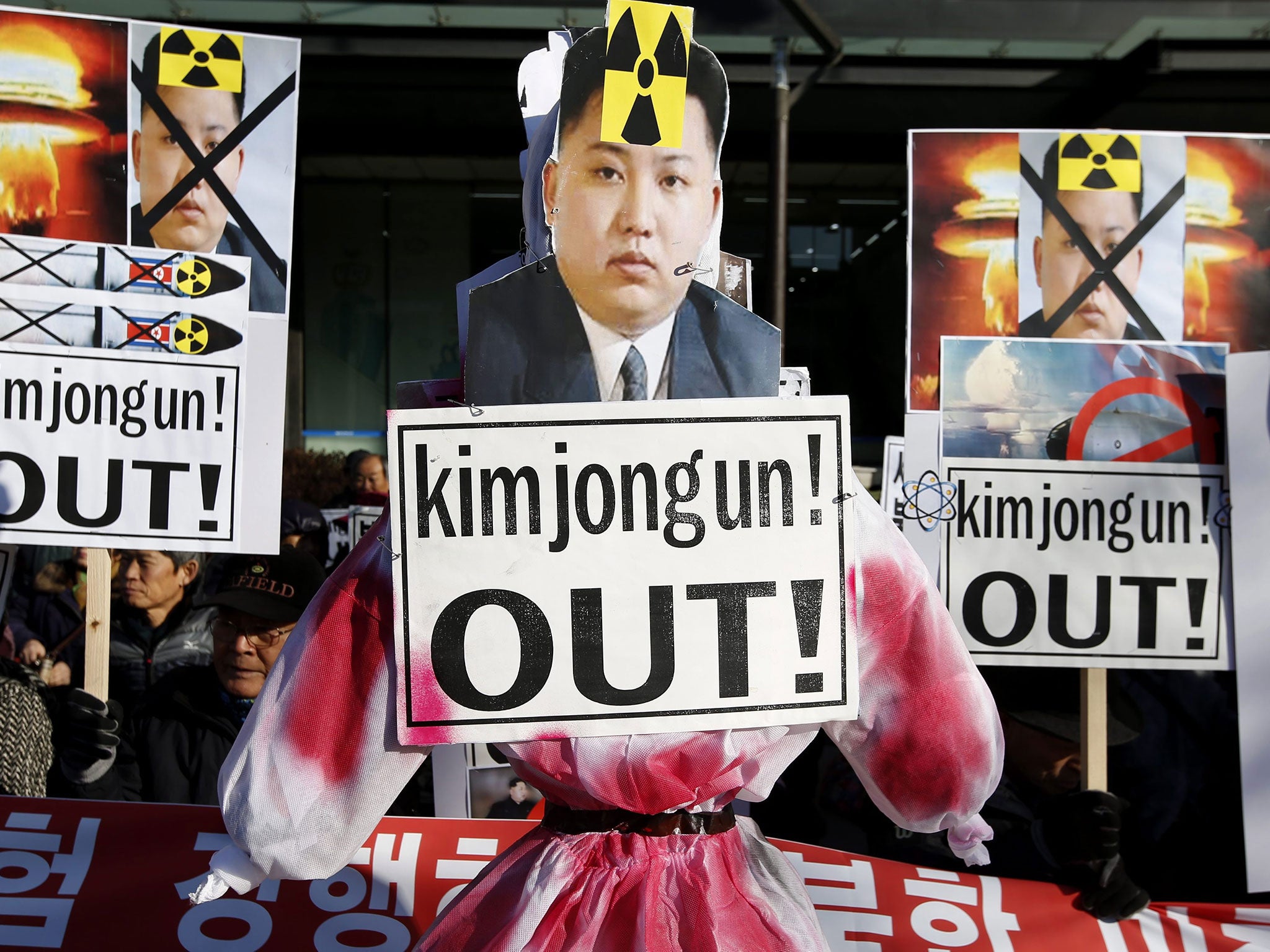North Korea hydrogen bomb: UN condemns test as 'a clear threat to international peace and security'
The hermit kingdom’s claim to have tested a hydrogen bomb for the first time has met with incredulity. But the announcement is an ominous reminder of the country’s threat to world peace

North Korea is facing anger and scorn from the outside world, and apparent jubilation from its own population, after the secretive regime proclaimed it had successfully tested its first miniaturised hydrogen bomb.
All 15 members of the United Nations Security Council, including China, its powerful neighbour and only potential UN ally, strongly condemned the nuclear test. They declared it “a clear threat to international peace and security”, and vowed to pursue new sanctions against the regime of President Kim Jong-un.
Meanwhile, the White House backed a growing consensus among nuclear experts that the underground test – detected early yesterday morning and at first thought to have been a small earthquake – fell short of the breakthrough from lesser nuclear weapons being claimed by the regime.
It said the US government’s early analysis of underground activity in North Korea “is not consistent” with that country’s claim of having conducted a successful hydrogen bomb test. South Korea’s spy agency said the estimated explosive yield from the explosion was much less than even a failed H-bomb detonation would produce.
The country’s fourth nuclear test appeared no more powerful than its last test nearly two years ago. Initial reports recorded an earthquake near the test site of magnitude 4.9 to 5.1 – about the same as that in February 2013. North Korea has exploded plutonium devices in all three previous tests since its first in October 2006.
The supposed breakthrough would be a major step towards placing miniaturised but more powerful hydrogen weapons on long-range missiles that North Korea is also developing, putting scores of countries within range of a nuclear attack – including parts of the US.
In pictures: North Korea hydrogen bomb test
Show all 15“Let the world look up to the strong, self-reliant nuclear-armed state,” Mr Kim declared in a hand-written note of celebration displayed by state television. A large crowd of North Koreans celebrated in front of the main railway station in the capital, Pyongyang, as the announcement was read on a video screen.
It came as Mr Kim prepared to observe what is believed to be his 32nd birthday on Friday. North Korea does not generally make a show of his birthday for fear of drawing attention to his inexperience since he succeeded his late father Kim Jong-il in 2011. But it conducted its previous test three days before the 72nd anniversary of Kim Jong-il’s birth in 1941.
Mr Kim, who had boasted of North Korea’s hydrogen bomb during an inspection tour last month, evidently wanted to claim success to impress enemies near and far with the mounting threat posed by his regime.
Pyongyang’s Korean Central News Agency (KCNA) said the North “was forced to develop its nuclear arsenal” for defence against “the ever-growing nuclear threat and blackmail by the US-led hostile forces” but that North Korea would not strike first. Nor, said KCNA, would the North “transfer the technology” – an obvious reference to charges that North Korea has exchanged nuclear information and material with Iran. Although there was widespread scepticism about the North Korean claim that it was a hydrogen bomb, some surmised that North Korean scientists and engineers had made significant improvements in the newest device. “They are trying to upgrade their capability,” said Choi Jin-wook, president of the Korea Institute of National Unification in Seoul.
The device, while “highly unlikely to have been a hydrogen bomb”, may have been “a boosted fission weapon, indicative of North Korea’s developing weapons capabilities”, said Alison Evans of intelligence consultants IHS Country Risk.
The test poses a challenge to major powers which have struggled to find effective ways to “punish” a regime that has seemed unmoved by previous UN sanctions. Mr Choi said “the most painful thing for North Korea” would be for China to freeze its access to banking. China also has control over most of the country’s access to oil supplies.
On the US presidential campaign trail, several Republican candidates blamed the White House and former Secretary of State Hillary Clinton for failing to halt the development of North Korea’s nuclear programme. Ohio Governor John Kasich said the Obama administration had been “asleep at the wheel on North Korea,” while Florida Senator Marco Rubio described Mr Kim as “a lunatic who has been expanding his nuclear arsenal while President Obama has stood idly by.”
Subscribe to Independent Premium to bookmark this article
Want to bookmark your favourite articles and stories to read or reference later? Start your Independent Premium subscription today.

Join our commenting forum
Join thought-provoking conversations, follow other Independent readers and see their replies